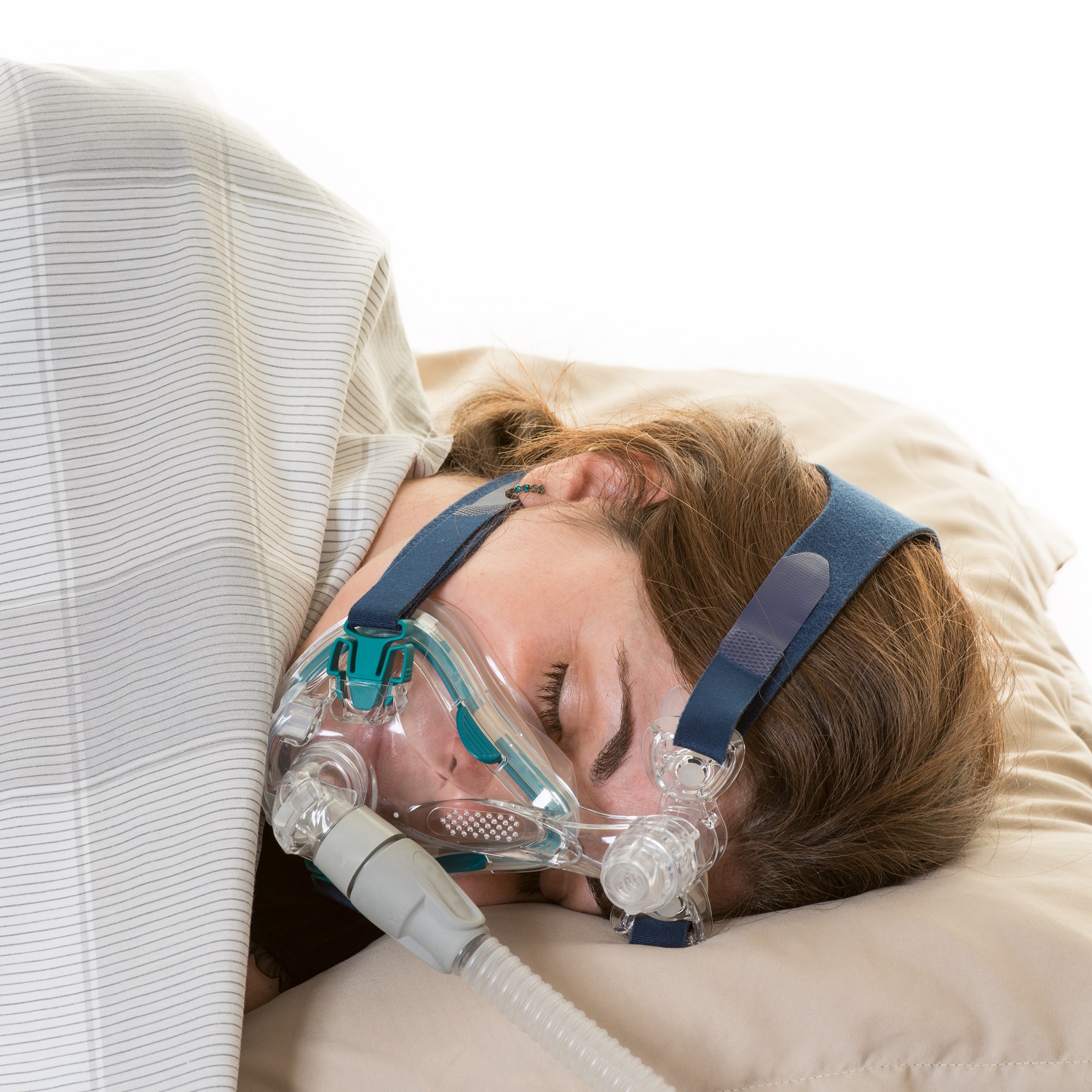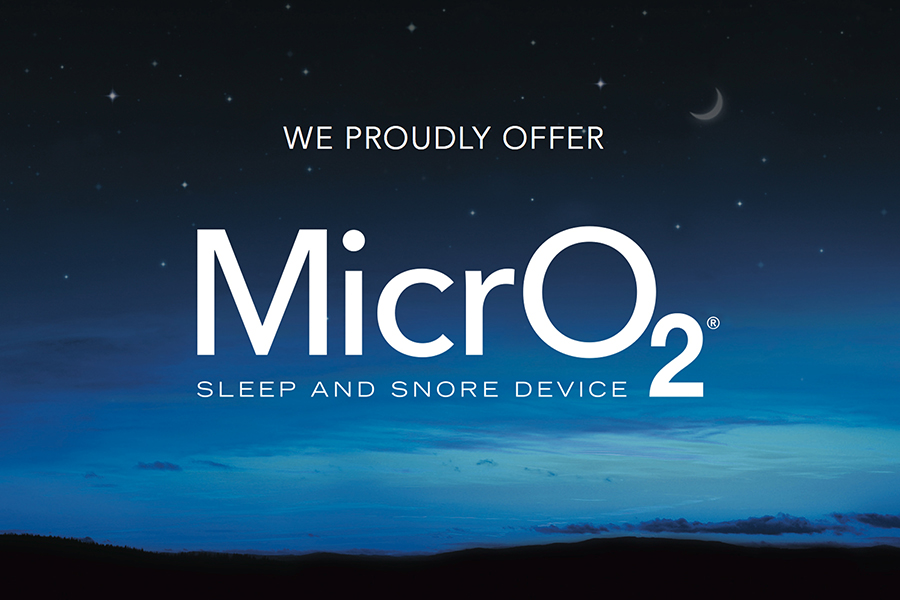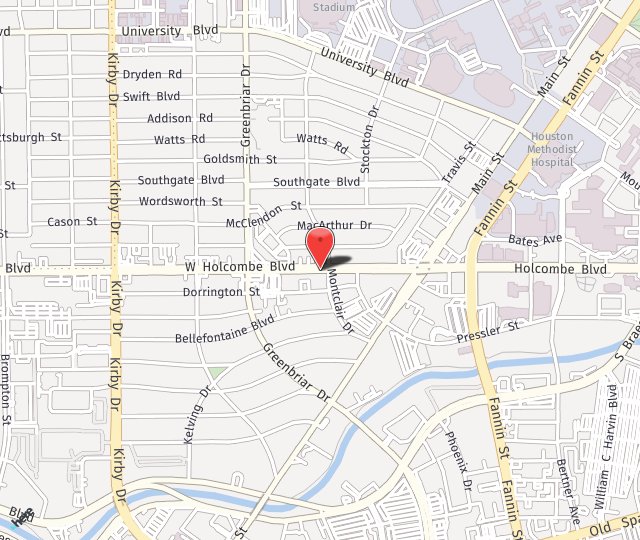
CPAP provides a continuous flow of oxygen, delivered via mask or nasal tubing, when in use. This allows breathing to continue even when messages are not being sent to the lungs, making it ideal for the treatment of central sleep apnea.
The second type of sleep apnea, obstructive sleep apnea or OSA, is far more common than central. OSA often occurs on its own, without an underlying disease. WIth this sleep disorder, the muscles that support the airways, including the soft palate, over-relax during sleep, resulting in an obstruction of the airway. As a result, breathing can be become labored or even stop completely, causing the body to react by gasping for air – one of the most common symptoms of OSA. Unfortunately, because this occurs during sleep, many cases of obstructive sleep apnea go undiagnosed. In fact, it is estimated that 80% people with OSA have not received a proper diagnosis – a tragic oversight that is placing their lives at risk and one that illustrates the importance of knowing the symptoms of obstructive sleep apnea.
Symptoms of OSA
Snoring is the most common of the sleep apnea symptoms. If you have been told you snore or if your own snoring has actually jarred you awake in the past, it may be a good idea to meet with a sleep specialist to determine if OSA is the cause. Even when not, sleep apnea treatments may be able to treat snoring and restore peace in your bedroom.
Gasping for air is another symptom of sleep apnea. This may occur several times during sleep, but is often not enough to cause a person to wake. When it is, waking may be forgotten by morning, another factor which can complicate the proper diagnosis of OSA.
In addition to snoring and breath cessation following by gasping for air, common sleep apnea symptoms include:N
- Night sweats
- Frequent morning headaches
- Waking with a dry mouth
- Not feeling refreshed upon waking
- Excessive daytime fatigue
- Difficulties concentrating
- Memory problems
- Decreased libido
Obstructive sleep apnea may also result in mood changes, including anxiety, depression, and irritability. These often get worse as the disorder progresses in the absence of treatment, though they are not the only dangers posed by untreated OSA.
The Dangers of Obstructive Sleep Apnea
Aside from interfering with a proper night’s sleep, OSA is related to a number of serious and even fatal complications. Untreated sleep apnea increases risks for:
- Cardiovascular problems including heart attack and stroke
- Type 2 diabetes
- Mood disorders
- Complications with existing medical conditions
Perhaps one of the most insidious complications of obstructive sleep apnea is excessive daytime fatigue. Not only can this result in diminished productivity and effectiveness at home, work, and beyond, it increases risks of car accidents and similar dangers of sleep deprivation.
The CDC reports that as many as 6,000 fatal car accidents may be related to drowsy driving every year and lists sleep disorders, like OSA, as one of the factors in these accidents.
Sleep apnea interferes with a restful night’s sleep. According to a study conducted at the School of Medicine at UCLA, this is very much like being drunk. Dr. Izthak Fried, the lead researcher for the study, is quoted as saying, “[S]tarving the body of sleep also robs neurons of the ability to function properly. This leads to cognitive lapses in how we perceive and react to the world around us.”
In other words, the sleep-deprived brain cannot process information appropriately, increasing risks for mistakes, oversight, and generally dangerous behavior.
Sleep Apnea Risk Factors
The dangerous behavior linked to sleep deprivation may be a result of dangerous behaviors linked to sleep apnea. These include:
- Smoking
- Alcohol use
- Narcotic use
- Sedative use
OSA is also linked to obesity, general inactivity, and uncontrolled diabetes or hypertension. If one of these factors is behind your sleep apnea, you will need to make lifestyle changes in addition to seeking treatment for your disorder. Continued self-abuse will complicate treatment and may even render it useless.
Additional factors linked to obstructive sleep apnea include:
- Being male
- Having asthma
- Suffering from chronic congestion
- Having a narrow airway
- A family history of sleep apnea
These things should be discussed with Dr. Konig during your sleep apnea treatment consultation to help ensure all possible contributing factors are accounted for.
Treating OSA

Houston sleep apnea dentist, Dr. Ronald Konig, offers a significant range of treatment options for OSA, the most common of which are customized oral devices that can help reposition the jaw, hold soft tissue in place, and keep the tongue in it proper position during sleep. Devices including the Silencer Professional and the MicrO₂® Sleep and Snore Device, the latter of which has shown in clinical studies to be 90% effective in treating moderate sleep apnea and 100% effective for mild cases of the disorder, are available through our office. During your treatment consultation, Dr. Konig can discuss all of the OSA treatment options we offer to help you choose the right one for your needs.
Choose Dr. Konig for Your Sleep Apnea Treatment
Dr. Konig has been awarded Fellowships from the Academy of General Dentistry and the Las Vegas Institute for Advanced Dental Studies. Recognized as Houston’s best TMJ dentist by Living Magazine and named Top Dentist in Houston by Houstonia magazine, Dr. Konig’s commitment to his patients comes through in everything he does.
If you have been diagnosed with sleep apnea or if you suspect you have OSA, Dr. Konig welcomes an opportunity to meet with you and discuss your condition, and to help you find the best solution for your needs.
If you live in or around Houston and are in need of sleep apnea treatment, please call 713-668-2289 to schedule your consultation today.

